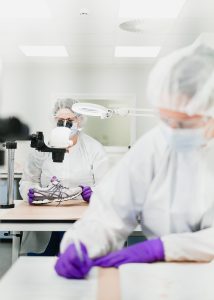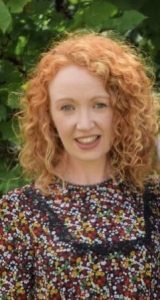Tuesday 20th February 2024 from 19:00 for 19:30
Abingdon United Football Club (Northcourt Rd, OX14 1PL, Abingdon)
 ‘Every contact leaves a trace’. This was the principle formulated by French Criminalist, Edmund Locard, in the 1910s and is still the foundation of forensic science today. When a crime is committed things change; people are hurt, household objects are touched, windows are broken, marks are deposited, paint is smeared. The opportunity to understand what has changed can come in any form.
‘Every contact leaves a trace’. This was the principle formulated by French Criminalist, Edmund Locard, in the 1910s and is still the foundation of forensic science today. When a crime is committed things change; people are hurt, household objects are touched, windows are broken, marks are deposited, paint is smeared. The opportunity to understand what has changed can come in any form.
Everyone knows about DNA and the amazing tool it has become in criminal investigation, but what else can be found and processed at a crime scene? What does finding a paint flake or an unknown liquid or a footprint on a window ledge mean and what can it offer investigators? This talk will explore the non-DNA side of forensic science and how everyday objects can provide significant evidence in a case.
Speaker: Rachel Hewetson
 Rachel Hewetson is a forensic reporting scientist with Cellmark Forensic Service. She has been working as a forensic scientist since 2006, firstly with Eurofins Scientific (then LGC Forensics) and, since 2012, with Cellmark Forensic Services. She specialises in DNA, blood, marks and glass evidence and is the Science Lead for Marks Evidence at Cellmark’s Abingdon Laboratory. Rachel also has extensive experience in the photographic enhancement of marks and is an experienced expert witness, having presented evidence in Crown and Magistrates Court on numerous occasions across the UK.
Rachel Hewetson is a forensic reporting scientist with Cellmark Forensic Service. She has been working as a forensic scientist since 2006, firstly with Eurofins Scientific (then LGC Forensics) and, since 2012, with Cellmark Forensic Services. She specialises in DNA, blood, marks and glass evidence and is the Science Lead for Marks Evidence at Cellmark’s Abingdon Laboratory. Rachel also has extensive experience in the photographic enhancement of marks and is an experienced expert witness, having presented evidence in Crown and Magistrates Court on numerous occasions across the UK.
Rachel earned a first class honours degree in Chemistry from University College Dublin, Ireland, and a Master’s Degree in Forensic Science from University Strathclyde, Glasgow.
